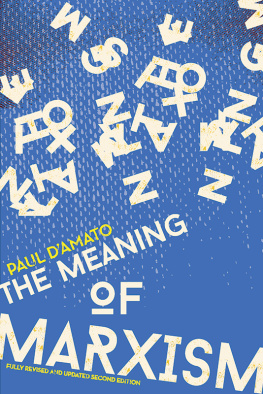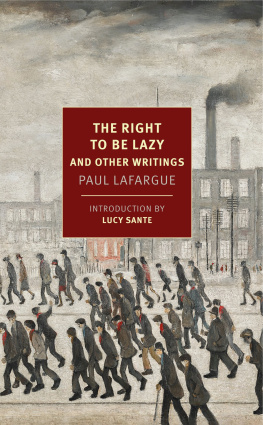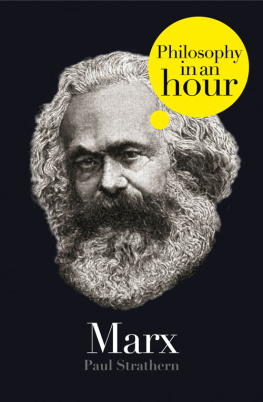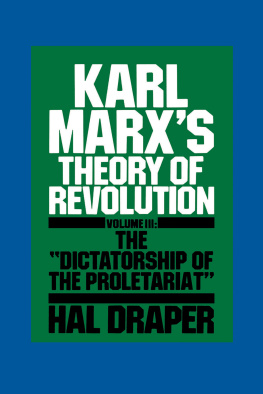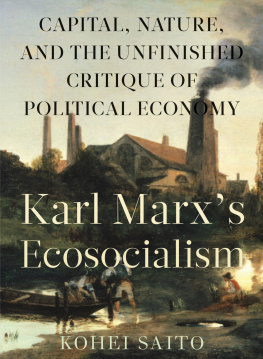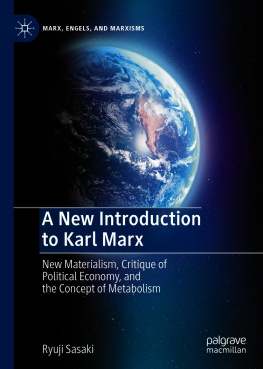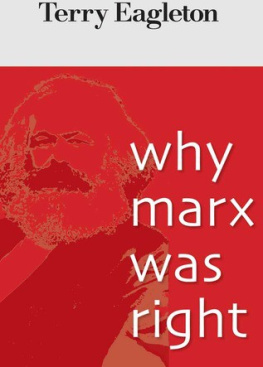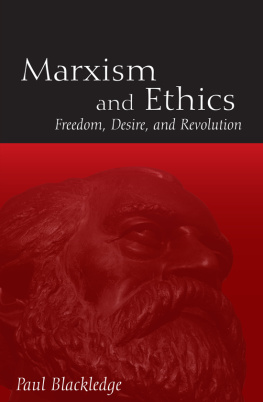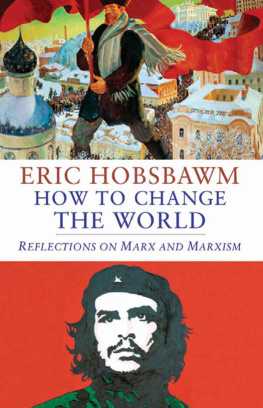Paul DAmato - The Meaning of Marxism
Here you can read online Paul DAmato - The Meaning of Marxism full text of the book (entire story) in english for free. Download pdf and epub, get meaning, cover and reviews about this ebook. year: 2014, publisher: Haymarket Books, genre: Politics. Description of the work, (preface) as well as reviews are available. Best literature library LitArk.com created for fans of good reading and offers a wide selection of genres:
Romance novel
Science fiction
Adventure
Detective
Science
History
Home and family
Prose
Art
Politics
Computer
Non-fiction
Religion
Business
Children
Humor
Choose a favorite category and find really read worthwhile books. Enjoy immersion in the world of imagination, feel the emotions of the characters or learn something new for yourself, make an fascinating discovery.
- Book:The Meaning of Marxism
- Author:
- Publisher:Haymarket Books
- Genre:
- Year:2014
- Rating:5 / 5
- Favourites:Add to favourites
- Your mark:
- 100
- 1
- 2
- 3
- 4
- 5
The Meaning of Marxism: summary, description and annotation
We offer to read an annotation, description, summary or preface (depends on what the author of the book "The Meaning of Marxism" wrote himself). If you haven't found the necessary information about the book — write in the comments, we will try to find it.
Long-considered dead by mainstream critics, the basic ideas of Karl Marx are brought to life in this overview of his thought. This book argues that instead of irrelevant, Marxs ideas of globalization, oppression, and social change are more important than ever.
Paul DAmato is managing editor of the International Socialist Review. His writing has appeared in CounterPunch, Socialist Worker and Selves and Others.
The Meaning of Marxism — read online for free the complete book (whole text) full work
Below is the text of the book, divided by pages. System saving the place of the last page read, allows you to conveniently read the book "The Meaning of Marxism" online for free, without having to search again every time where you left off. Put a bookmark, and you can go to the page where you finished reading at any time.
Font size:
Interval:
Bookmark:
Contents
2014 Paul DAmato
First published in 2006 by Haymarket Books.This revised and updated edition published in 2014 by
Haymarket Books
PO Box 180165
Chicago, IL 60618
773-583-7884
info@haymarketbooks.org
www.haymarketbooks.org
ISBN: 978-1-60846-051-9
Trade distribution:
In the US, Consortium Book Sales and Distribution, www.cbsd.com
In the UK, Turnaround Publisher Services, www.turnaround-uk.com
In Australia, Palgrave Macmillan, www.palgravemacmillan.com.au
All other countries, Publishers Group Worldwide, www.pgw.com
Special discounts are available for bulk purchases by organizations and
institutions. Please contact Haymarket Books for more information at
773-583-7884 or info@haymarketbooks.org.
This book was published with the generous support of Lannan Foundation and the Wallace Action Fund.
Cover design by Samantha Farbman.
Library of Congress CIP data is available.
Chapter Two
Marxs Materialist Method
Why Theory Matters
The last thesis that Marx jotted down in 1845 was this: The philosophers have merely interpreted the world; the point, however, is to change it.
While people might declare that ideas about society are a waste of time, they wouldnt say the same thing about what we call the hard sciences. No one would ever say: Who needs physics? (Except maybe bored high school students.) All of our modern technologyfrom electricity to airplane engines and computerswas developed on the basis of science.
Scientific theory helps us get beneath the surface appearance of things to understand the underlying laws that govern their behavior. All science would be superfluous, wrote Marx, if the outward appearance and the essence of things directly coincided. Scientific theories are explanations about why and how things happen that are not apparent through immediate observation. We cant, for example, know what processes are at work that make water boil simply by observing water boiling.
If we lived on a planet where nothing ever changed, there would be little to do, wrote science writer Carl Sagan. There would be nothing to figure out. There would be no impetus for science. And if we lived in an unpredictable world, where things changed in random or complex ways, we would not be able to figure things out. Again, there would be no such thing as science. But we live in an in-between universe, where things change, but according to patterns, rules, or, as we call them, laws of nature.
How do we know whether or not a theory is right or wrong? It has to be tested in practice. A scientific theory can be invalidated if examples or results are found that the theory cannot explain. Wrong theories produce bad, if not useless, practical results; or they cannot explain every case they are meant to explain. Indeed, the proof of a scientific theorys soundness lies, with some exceptions, in its ability to predict behavior, whether practical experiments can reproduce what it predicts will happen, or whether the practical applications developed out of the theory actually work.
That isnt to say that the application of science is completely neutral. Obviously, the fact that governments and businesses spend more time and money on things like nuclear weaponry and designer drugs than on curing deadly diseases tells us something about the way capitalism shapes scientific inquiry today. Scientific practice is not an objective pursuit that takes place outside of society; it is largely harnessed to the interests of profit-making and military competition between states. Modern science is big business, writes David B. Resnick. Like any other business, science is influenced by economic forces and financial interests. Nevertheless, the whole purpose of science, for good or ill, is to assist in changing reality. Scientists, in other words, must be able to interpret the world in order to change it. This holds true, perversely, also with the atomic bomb, if we were to replace change with destroy.
Can there be, however, any talk of science in regard to understanding, or changing, society? Marxs little quip quoted above about philosophers only interpreting the world when the point is to change it was written as an attack on armchair thinkers, people who talked but did nothing. He didnt really think that there was no point interpreting the worldrather, he thought that there was no point interpreting the world unless you were trying to change it. Ideas divorced from practice are free to float in the stratosphere, where one is as good as the nextor as useless, as anyone who has been to a graduate-student wine-and-cheese party can attest.
Science can be harnessed to suit the needs of corporations attempting to improve production techniques and outsell their competitors. But we live in a society that is divided into a small minority of very wealthy exploiters and a majority of people who work or starve. All societies that are divided into a minority class of exploiters and a majority class of exploited require for their functioning a set of ideas that reinforce class domination. The ideas of the ruling class are in every epoch the ruling ideas, i.e., the class which is the ruling material force of society, is at the same time its ruling intellectual force, Marx and Engels wrote in 1845. The class which has the means of material production at its disposal, has control at the same time over the means of mental production, so that thereby, generally speaking, the ideas of those who lack the means of mental production are subject to it. The ruling ideas are nothing more than the ideal expression of the dominant material relationships.
Consequently, the closer we get to lines of inquiry that involve human society, the less scientific, and the more apologetic, the inquiry becomes. The ruling, capitalist class (whom Marx and Engels referred to as the bourgeoisie) certainly harnesses social ideas to its needs. But it does so for the purpose of justifying its rulenot changing the unequal relations between rich and poor in society, but keeping them the way they are. The fact that the United States was founded on conquest (of Indians and Mexicans) and enslavement (of Africans), or that the legal system favors the rich over the poor and the white over the Black, or that workers here had to go on strike to get an eight-hour day, is not going to be prominent in most high school textbooks. History reflects the ruling ideology.
The ruling ideas are ideas meant to bolster the status quo, not explain or challenge it. An example of this would be the idea that outside agitators cause strikes and social movements, a common refrain among employers and their political hirelings throughout the history of the US labor movement. The argument conveys the idea that ordinary people are too happy with their lot to want to fight against their own oppression, but are gullible and therefore easily duped by Machiavellian leftists. The assumption is also that the victims of injustice lack the wit or the will to challenge their superiors, that they are incapable of acting on their own grievances and rationally choosing their allies, writes radical British author Mike Marqusee.
Historians and sociologists usually make more sophisticated arguments than this, but their sophistication does not necessarily indicate greater insight. Indeed, often less crude, more superficially impressive arguments are more useful in bolstering the status quo. Marx challenged the bourgeois economists of his time, saying that for them, it wasnt a question of whether this theorem or that was true, but whether it was useful to capital or harmful, expedient or inexpedient, politically dangerous or not. More than that, the social science practitioners and theorists routinely set out to discredit anyone who puts forth the idea that class and class struggle are central to history. Lenin put it this way:
Next pageFont size:
Interval:
Bookmark:
Similar books «The Meaning of Marxism»
Look at similar books to The Meaning of Marxism. We have selected literature similar in name and meaning in the hope of providing readers with more options to find new, interesting, not yet read works.
Discussion, reviews of the book The Meaning of Marxism and just readers' own opinions. Leave your comments, write what you think about the work, its meaning or the main characters. Specify what exactly you liked and what you didn't like, and why you think so.

